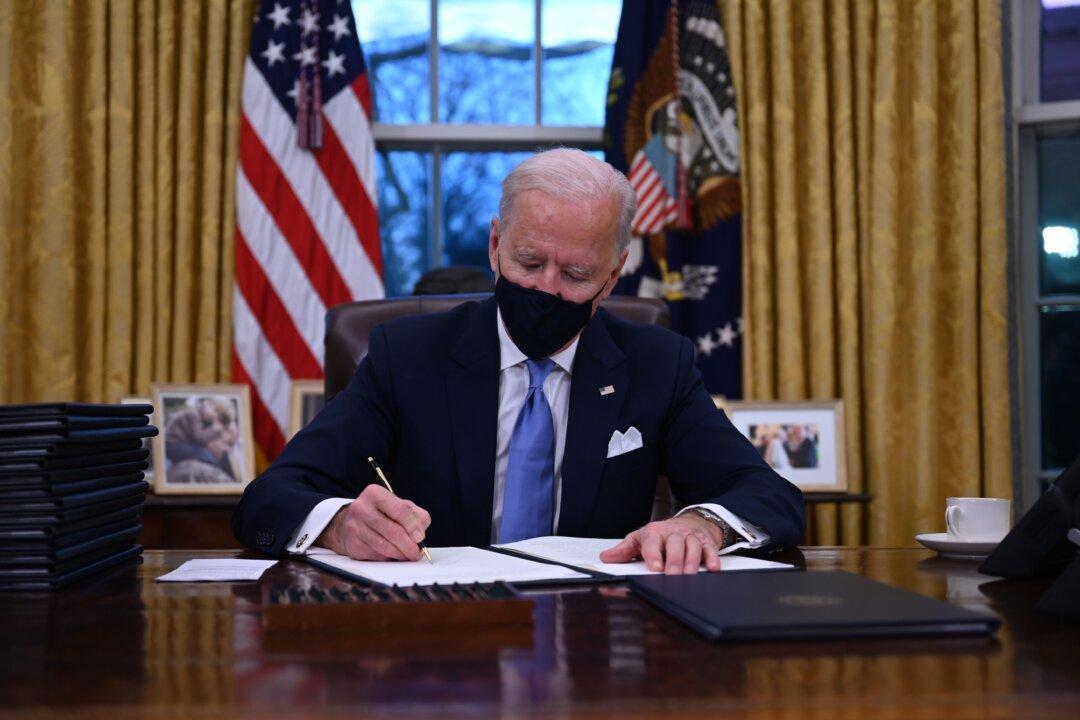Rejoining the Paris climate agreement as it stands now will have devastating economic consequences for the United States, with little actual environmental benefit, according to experts.
President Joe Biden on Jan. 20 signed an executive order to rejoin the global pact, one of his first major moves as president. According to the United Nations, developed countries under the agreement should “take the lead in providing financial assistance to countries that are less endowed and more vulnerable,” while also encouraging voluntary contributions by other countries.





